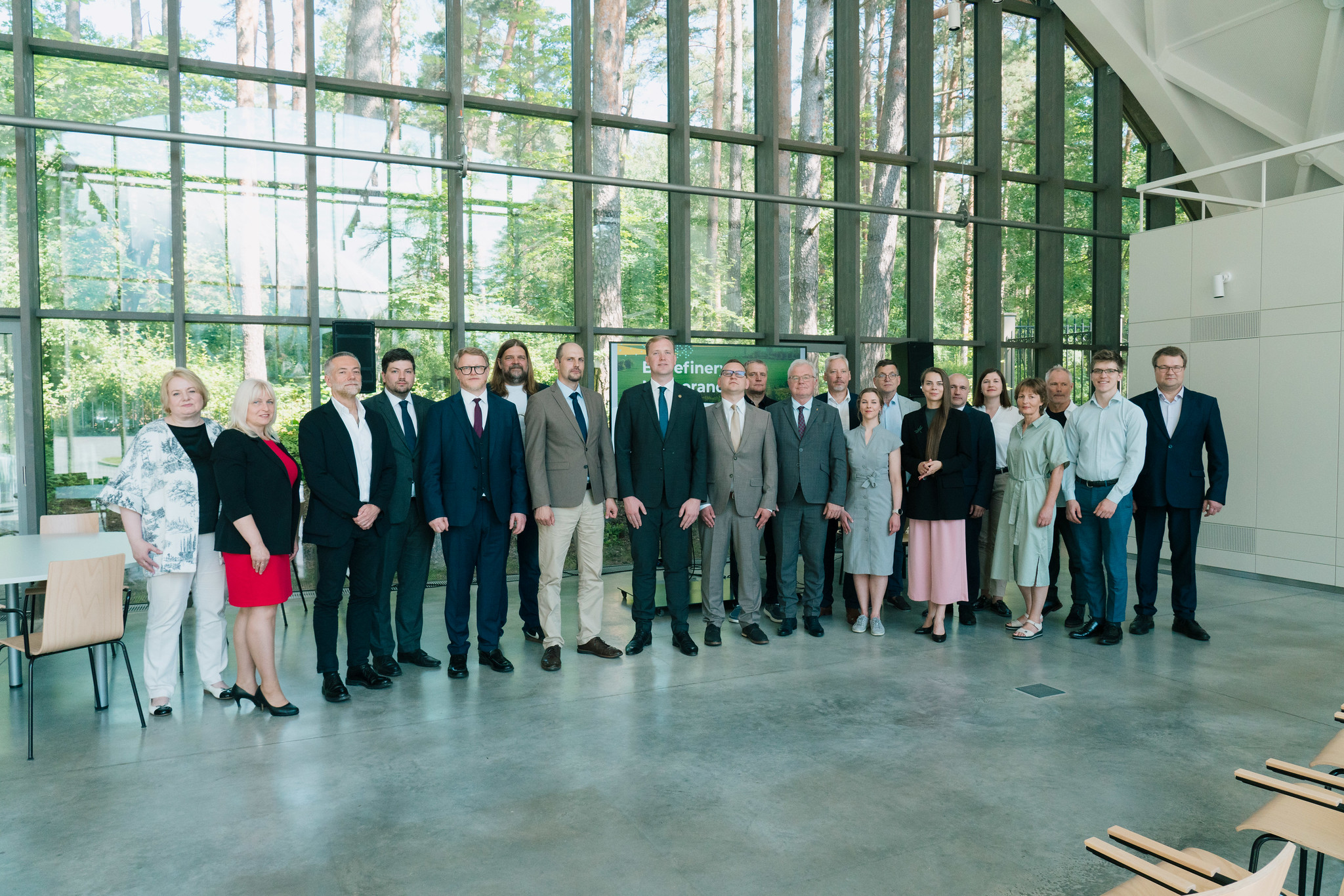On 18 June, the Rector of Riga Technical University (RTU), Tālis Juhna, together with more than twenty other heads of companies and organisations, signed a Memorandum of Cooperation on the establishment of a biorefining ecosystem that will make a significant contribution to the development of the bioeconomy. Biorefining is a fast-growing industry that provides for the processing of biomass into energy or consumer products used in the production of building materials, the food industry and other areas, according to the Latvian Investment and Development Agency (LIAA).
Biorefining is a process that can extract high added value products from biomass. While Latvia has so far exported biomass abroad in large volumes, the conditions are now in place for it to be processed in Latvia. Consumers in export markets have a growing demand for «green products» and this is a great opportunity for Latvia to take advantage of its advantages.
«The Biorefining Memorandum opens a new chapter for the Latvian economy. It is a broad step towards our goal of doubling the size of the country's economy in the next ten years. With the cooperation of business, scientific institutions and public administration, we can move much faster towards this goal,» said Viktors Valainis, Minister of the Economy.
The bioeconomy is currently the largest contributor to Latvia's manufacturing industry. Its total exports in 2023 amounted to €7.86 billion, but since 2014 the level of export production has almost doubled. The sector provides 125 000 jobs and has huge potential for Latvia's economic development.
Biorefining allows up to 90% of biomass feedstocks to be converted into materials that are widely used in building materials, pharmaceuticals, cosmetics, textiles, food processing and other industries, replacing fossil resources and chemicals. Biorefining produces products such as biofuels, bioplastics, various essential oils and food supplements, cellulose, animal feed and fertilisers, and other valuable products. In this way, the ecological footprint of the production process can be reduced and the final products made more environmentally friendly.
The Memorandum promotes good governance and initiatives to support and stimulate the development of new value chains from bio-based materials sourced locally, and calls for a focus on creating the final product in Latvia. This will ensure that the economic benefits, job creation and experience of sustainable practices associated with biorefinery projects will take advantage of Latvia's bioeconomy and also contribute to regional development.
To coordinate cooperation between industry, universities, research institutions and public administrations, a steering committee has been set up to ensure information exchange and cooperation between the parties involved.
The Memorandum has been signed by the Ministry of Economics, LIAA, the Ministry of Agriculture, ASNS Ingredient, Fibenol Latvia, Aloja - Starkelsen, Field and Forest, Biolat and Bio-Venta, higher education institutions RTU, the University of Latvia, the Latvian University of Biosciences and Technology, Vidzeme University of Applied Sciences and scientific institutions - Latvian State Institute of Wood Chemistry, Baltic Studies Centre, Institute of Agroresources and Economics, BIOR Scientific Institute of Food Safety, Animal Health and Environment and Environmental Solutions Institute.

